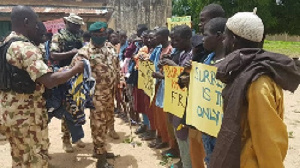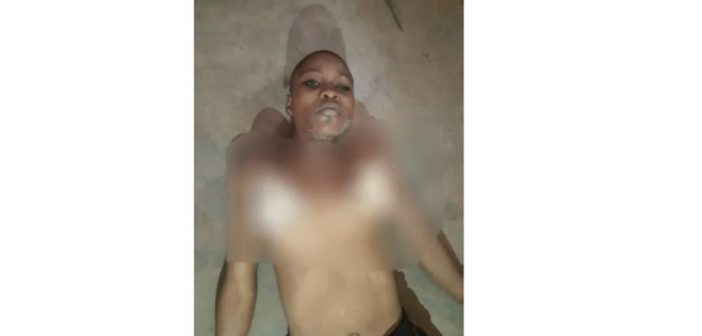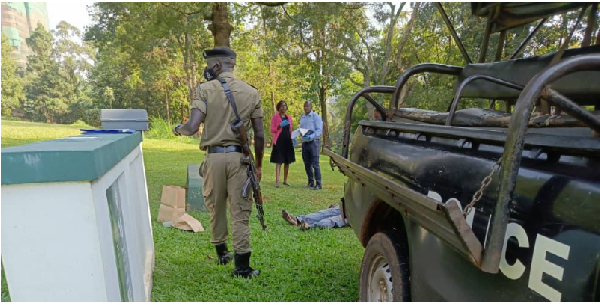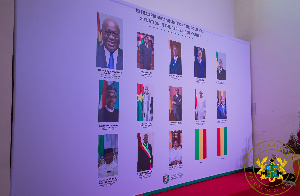Arresting Putin would be declaration of war against Russia – Ramaphosa

President Cyril Ramaphosa has told the High Court in Gauteng that arresting Russian President Vladimir Putin, if he travels to South Africa for the BRICS summit in August, would be a declaration of war against Russia.
And the president did not want the public to know that.
However, the court ruled on Tuesday that Ramaphosa and his government’s response to the DA’s legal attempt to force the government to arrest Putin should be made public.
“It would be a reckless, unconstitutional and unlawful exercise of the powers conferred upon the government to declare war with Russia by arresting President Putin,” Ramaphosa told the court in his affidavit, which he argued should be kept a secret.
The court disagreed with the Presidency’s assertions that Ramaphosa wanted to keep his affidavit secret “to keep the interactions with the ICC [International Criminal Court] on the warrant of arrest against President Putin confidential”.
In the affidavit, which has since been made public, Ramaphosa said he did not want to risk waging war with Russia.
“It would be inconsistent with our Constitution to risk engaging in war with Russia. I have constitutional obligations to protect the national sovereignty, peace and security of the republic, and to respect, protect, promote and fulfil the rights of the people of the republic to life, safety and security, among other rights in the Bill of Rights,” he said.
In arguing for confidentiality, Ramaphosa quoted a Rome Statute article which states that a requested country “shall keep confidential a request for co-operation and any documents supporting the request confidential, except to the extent that the disclosure is necessary to the execution of the request”. South Africa is a signatory to the Rome Statute, which governs the ICC.
Following Tuesday’s judgment, the Presidency said that Ramaphosa “was never opposed to making the affidavits public; it was only in compliance with the ICC directive that the Presidency sought to maintain confidentiality on the affidavit”.
The High Court order came in response to the DA’s application that the government must “take all necessary steps to arrest and detain President Putin for surrender to the ICC” should he arrive for the BRICS summit, expected to run from 22 to 24 August in Johannesburg.
The ICC issued an arrest warrant for Putin in March, accusing him of war crimes relating to Russia’s ongoing invasion of Ukraine since February last year.
The DA is relying on the Supreme Court of Appeal’s (SCA) 2015 judgment that it was unlawful for the government not to have arrested Sudan’s former president Omar al-Bashir when he attended the African Union summit in June of that year. The ICC had also issued an arrest warrant for Al-Bashir for alleged war crimes he committed during his 26-year reign before being ousted by a 2019 military coup.
Ramaphosa said in his affidavit that the DA’s demand for the government to arrest Putin was “incompetent” because “the government of South Africa is not cited as a party to the application, and no relief can therefore be granted against it”.
The DA has cited government ministries such as justice, police, international relations and cooperation, as well as the national police commissioner.
The DA disputed Ramaphosa’s arguments in its replying affidavit, saying the 2015 SCA Al-Bashir judgment “referred to the cited state functionary as the government”.
“For this reason alone, the respondents’ complainant is baseless,” said Elzanne Jonker, the DA’s attorney of record.
She added that Ramaphosa, in his papers, had not claimed that Putin was entitled to immunity from arrest and surrender to the ICC, either internationally or domestically.
“All defences seek to poke holes in the way the DA has brought the case, rather than to assert that, if President Putin arrives, the government is entitled to arrest him. Yet at the same time, the president never clearly states that, he will be arrested,” she said.
“Instead, he [Ramaphosa] skirts the issue – he tells the Court that the government knows its obligations, without ever saying what it believes those obligations to be.”
She added:
The High Court further ordered that advocacy organisation Media Monitoring Africa (MMA) be admitted as a “friend of the court”, meaning it can participate in the DA’s application. The organisation argued in favour of public access to Ramaphosa’s affidavit.
In his affidavit, MMA director William Bird said: “The more a matter implicates the need for accountability, truth finding, and an assurance that justice has been done, the greater the need to ensure open justice.”
He had cited several Constitutional Court rulings in underscoring his argument, including a 2015 judgment on the covering of the Oscar Pistorius murder trial.
The case will now be argued in open court on Friday.





